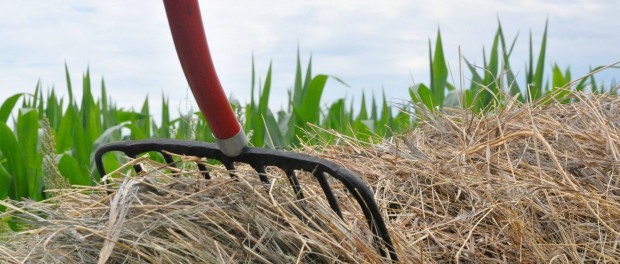The Daily Pitchfork’s Six Principles of Good Animal Journalism

The following core principles are the standard by which Daily Pitchfork editors publish original material and review and rate (using standard A-F letter grades) outside content. They were developed exclusively by our editors, adapted from the Society of Professional Journalists’ recently revised ethical guidelines to the coverage of animal issues.
- Be accurate. Because animals do not speak for themselves, animal issues require special vigilance in separating accurate from inaccurate information. Accuracy prevents the spread of errors that harm animals and the general public.
- Diligently research subjects and sources of news coverage. Use original sources and research. Clearly identify stakeholders (lawmakers, lobbyists, corporate entities, professional and business associations, etc.), their positions, affiliations and potential conflicts of interest — especially if working from a press release. Moreover, the differences among animal welfare, animal protection and animal rights groups are significant and should be accurately identified.
- Serve as watchdogs over private interests, public affairs and government by holding those in power accountable and giving a voice to the voiceless. The media has an obligation to recognize those whose voices are so often muted: the general public, the scientific community, public advocates and animals themselves. Toward this goal, it needs to avoid all forms of stereotyping and marginalizing, eliminate language designed to “humanewash” or “greenwash” issues (use “slaughter” and not “humane processing”), and treat animals as subjects of a life rather than as objects.
- Provide the essential context. When appropriate, the animal’s experience and the human-animal connection must be considered. New findings in animal ethology (behavior), environmental science, agricultural/business practices, and food safety (to name only a few) should help determine how a story is framed in order to properly balance human and animal interests. A diversity of perspectives should always be considered, but not at the risk of achieving false balance.
- Uphold a high standard of proof. Rather than unsubstantiated claims or vague estimates, the media should rely on sourced data, research, photography and other objectively sourced material. Creativity in seeking accurate sources is also strongly encouraged. Undercover or other surreptitious methods of gathering information are valid, but only when traditional, open methods do not yield information vital to the public. When it comes to animal issues, however, it may be more necessary than usual to take this approach.
- Be accountable. When errors occur, acknowledge and correct (or retract) promptly and prominently.
We are happy to have you share our guidelines. Two requests if you decide to do that: 1) give us credit and 2) we appreciate a link back to our site.
Thanks!

and disclose affiliations and biases
Especially so. Thanks for the mention.
Um, I just found you via an article online. Thanks for being here. It means a lot.
Now if we can only get large news outlets to follow something a kin to this
I wish every journalist had a framed copy of these guiding principles always within peripheral view of their keyboards while they wrote. Then perhaps they would be reminded of the difference between writing something based on conjecture and subjective bias and something objective and fact based. What an excellent summary of the principles of integrity in journalism !
If we are their voices, how can we continue to betray them with non transparency? Are our goals completely narcissistic, as the voiceless continue to perish? This is a most refreshing, factual article, that needs to be tattooed on our heads (brains and conscience)!!
all conflicts of interest should be identified by the author and newspaper at the end of every article.
Thank you Vickery. I have read many of your articles and I can not thank you enough. So many refuse to see. Thank you again